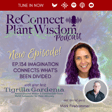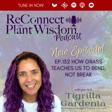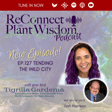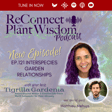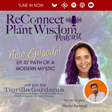
Ep.93 Growth in Disruption: What Forests and Fire Teach
In this episode, we dive deep into the natural wisdom of disruption and transformation. We often view upheaval as something to fear, but what if we approached it the way nature does?
Nature teaches us that adaptation is the key to resilience. By aligning with nature’s cycles, we gain clarity on our personal rhythms, release what no longer serves us, and step forward into a more aligned, sustainable future.
Topics Covered about Growth & Disruption
➡️ Why societal expectations often clash with our natural cycles—and how to shift into a more organic flow
➡️ Learning to navigate change with resilience, clarity, and alignment with our true purpose.
➡️ Using upheaval as a tool for self-discovery and co-creating with nature’s wisdom.
🌟Connect with nature-conscious creatives, multipotentialites, and naturentrepreneursin the premier online ecosystem that nourishes plant reawakening and community support for accelerated evolution and co-creation with otherkin. >> JOIN OUR COMMUNITY <<
☝🏽ReConnect with Plant Wisdom podcast Ancient and modern knowledge from biology to spirituality about the wondrous ways plants help you lead a Naturally Conscious life. Subscribe on your favorite podcast player.
// Let's work together: book a Discovery Call
// EcoConscious Business Partners: Gaia Original Series
// Opening and Closing music by Steve Sciulli and Poinsettia from The Singing Life of Plants
// Let's Connect on Social Facebook | Instagram | LinkedIn | Youtube

